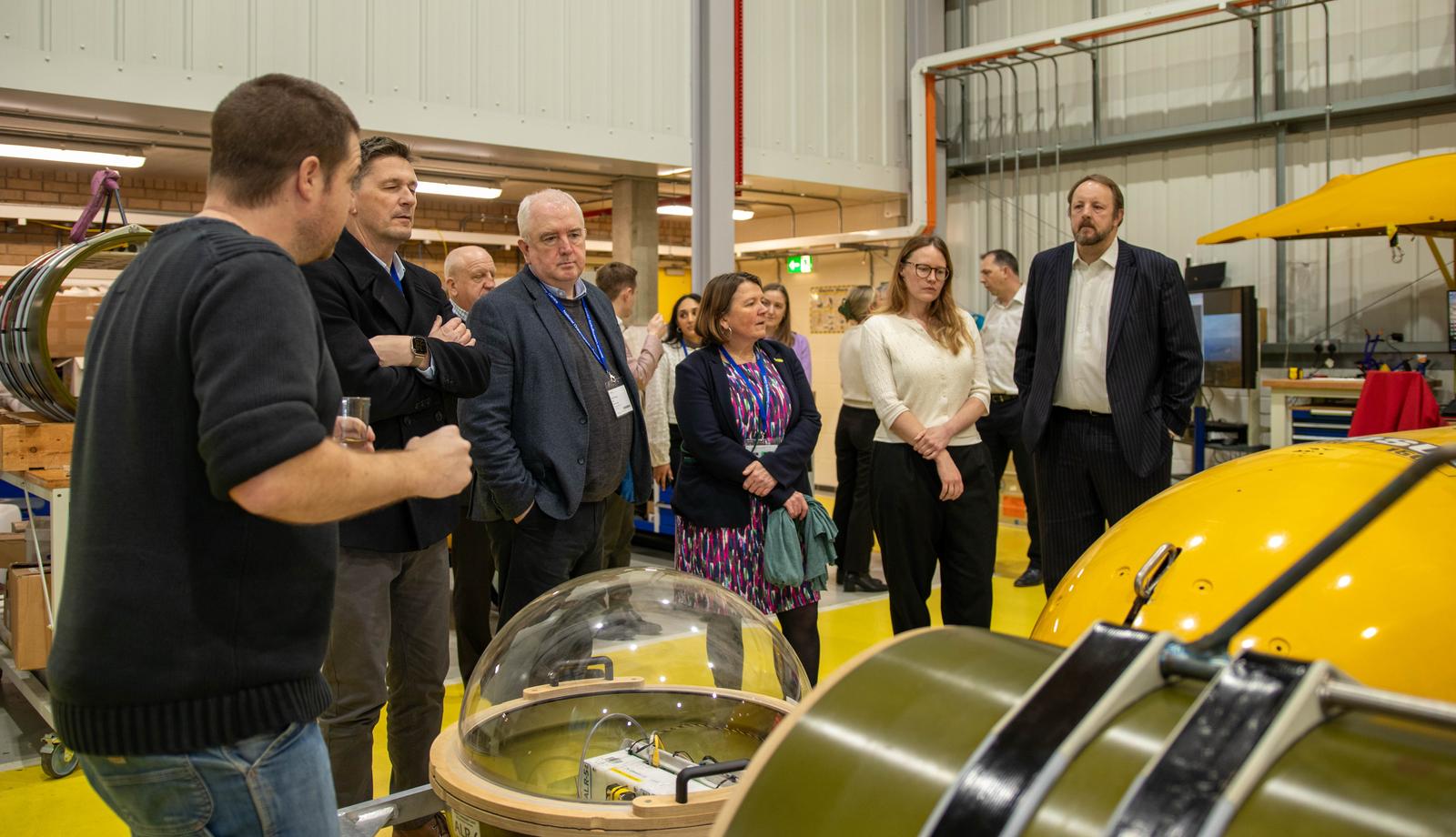By Sarah Taylor, Head of Public Affairs
Marine governance is fundamental to ensuring the sustainable use of our ocean spaces, and it is essential that robust, science-led policy underpins decision-making at the national level.
As an independent oceanographic research organisation, the National Oceanography Centre (NOC) plays a key role in providing the scientific evidence and expertise necessary for informed decision-making and governance.
Against this backdrop, we were delighted to welcome the Environmental Audit Committee to our Southampton site last week, as part of their ongoing inquiry into Governing the Marine Environment.
The Environmental Audit Committee is a House of Commons Select Committee, made up of cross-party MPs, that scrutinises and considers “the extent to which the policies and programmes of government departments and non-departmental public bodies contribute to environmental protection and sustainable development, and to audit their performance against sustainable development and environmental protection targets”.
Their inquiry into Governing the Marine Environment is focused on the UK's environmental obligations under marine treaties and how the UK is delivering on them, as well as the Government's strategy for marine planning and protection in its domestic waters.
During the visit, we hosted Committee Chair Toby Perkins MP, alongside Committee members Anna Gelderd MP, Ellie Chowns MP, Martin Rhodes MP, and John Whitby MP. The Committee engaged with NOC experts on a range of topics critical to marine governance, including climate mitigation, offshore wind, ocean technology, ocean climate and weather, ocean modelling and international policy.

The Environmental Audit Committee visiting NOC's Autosub Long Range (ALR) workshop.
At NOC, we contribute to marine policy and decision-making through cutting-edge research, advanced ocean monitoring technologies, and expert advisory roles.
Our research and data can help to inform government and parliamentary stakeholders on a number of key topics, such as marine protected areas, climate adaptation and mitigation strategies, impact of changes in the ocean on the weather and offshore energy development.
By developing ocean models, biodiversity assessments, and pollution tracking systems, we ensure that policymakers have the best possible information to manage the UK’s marine environment effectively. We also play a key role in international marine policy discussions, collaborating with global partners to address shared challenges.
Last week’s Environmental Audit Committee visit builds on ours active contribution to the inquiry, which included our Head of Marine Policy, Alan Evans, providing oral evidence to the Committee in January and a written evidence submission.
The vital role ocean science and technology play in marine governance
Our ongoing engagement with the Committee highlights the vital role that ocean science and technology play in understanding the marine environment and marine governance.
Following presentations from our scientists, the Committee toured key NOC facilities, including the British Ocean Sediment Core Research Facility (BOSCORF) and the Autonomous Long Range (ALR) vehicle workshop, showcasing the scientific research and technology capabilities that we house at NOC on behalf of the wider UK marine science community.
These facilities can be used to provide key stakeholders and decision-makers with robust, impartial and evidence-based scientific knowledge to support wider understanding and governance of the marine environment.
We have been pleased to work so closely with the Environmental Audit Committee on this important inquiry. Select Committees and inquiries provide important opportunities to scrutinise Government and hold their actions and policies to account, to examine the work of Government departments, whilst allowing them to gather important evidence from the ocean science and technology experts. We’re looking forward to the next steps of the Committee’s inquiry, which will include publication of its recommendations.
In developing its conclusions and recommendations, the Committee will take stakeholders’ views and evidence sessions into account – including written and oral evidence submissions, and site visits – such as the Committee’s visit to NOC last week.
The Government will then respond to the Committee’s recommendations. Engaging with Select Committees is therefore a really important way of not only raising the profile of the leading ocean science expertise at NOC, but also to ensure that our research is being recognised and considered by senior Government stakeholders, including Ministers.
We look forward to continuing engaging with policymakers, and to ensure that ocean science and technology remain central to the UK’s approach to understanding the marine environment and marine governance, helping to safeguard the future of our marine environment and help every living thing on our planet flourish.